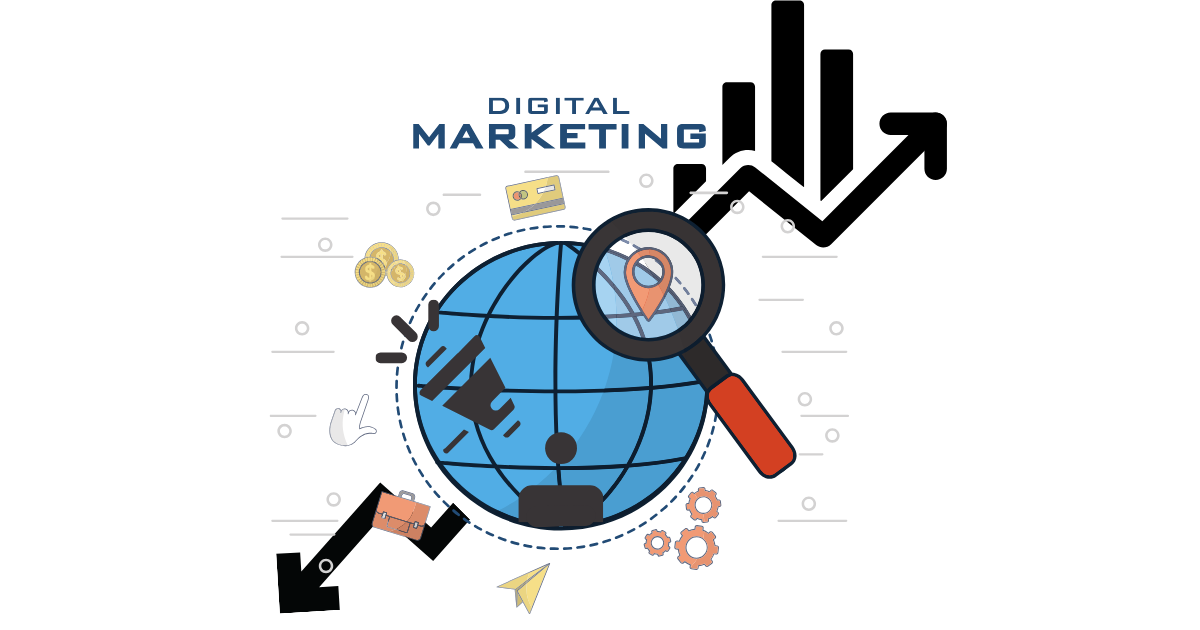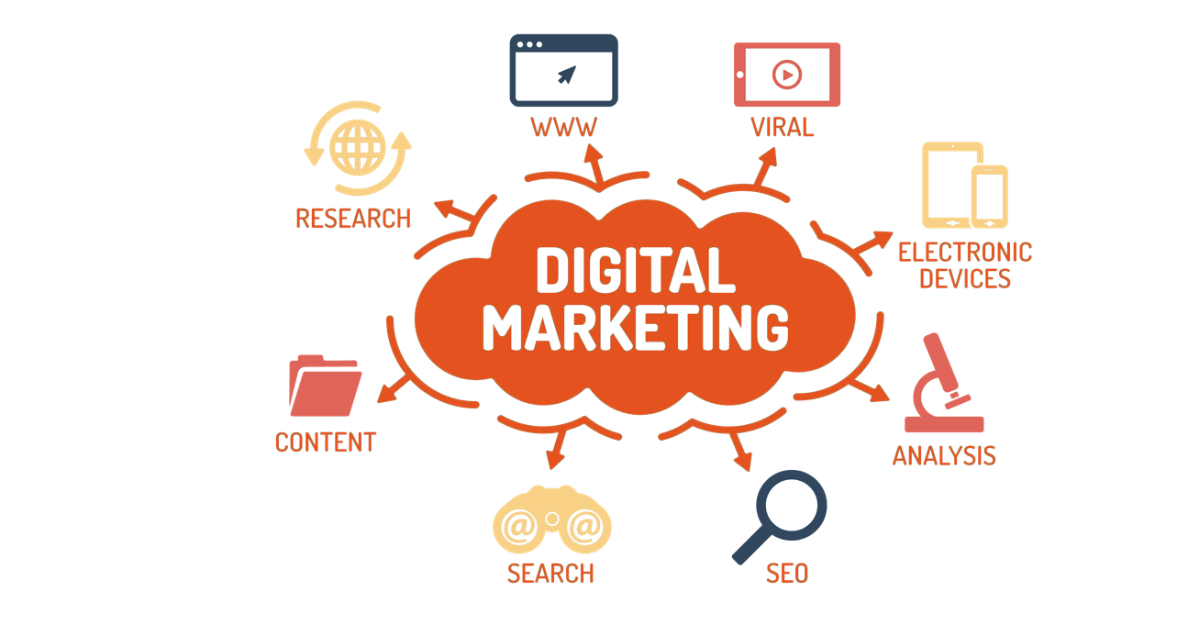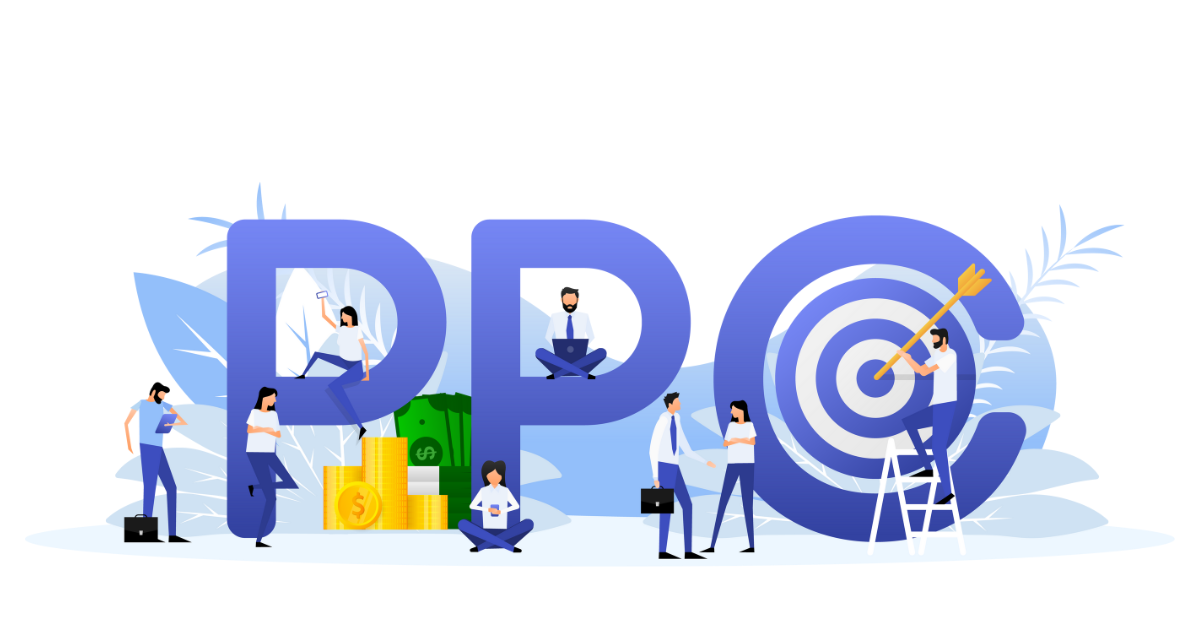The idea of marketing has changed dramatically, moving from static approaches to the dynamic field of digital marketing. Digital marketing refers to the wide range of online tactics and resources that companies use to engage with their target markets, build brand awareness, and increase sales. This essay examines the complex world of digital marketing and illuminates both its benefits and drawbacks. Organizations looking to succeed and expand in the contemporary marketplace must grasp the subtleties of digital marketing as the corporate world continues to change and adapt to the always-changing digital environment.
Definition of Digital Marketing
The process of using digital platforms and technology to advertise and promote goods, services, or brands is known as “digital marketing.” It includes an extensive array of digital strategies and methods that are intended to connect with and captivate target audiences via email, social media, mobile devices, search engines, and other digital platforms. As businesses use the power of the digital sphere to engage with customers in a more effective and customized way, it has become a crucial component of modern business.
Importance in the Modern Business Landscape
In the technologically advanced and fast-paced world of today, digital marketing is essential to the success of companies in a wide range of sectors. Since most customers spend a large amount of their waking hours on the internet, it is critical for businesses to have a strong online presence. This is made possible by digital marketing, which gives businesses the ability to target their advertising precisely, connect with a worldwide audience, and quickly adjust to shifting consumer trends.
Understanding Digital Marketing
Components of Digital Marketing
A wide range of elements make up digital marketing, and each one has a specific function in reaching and interacting with target consumers. Together, these elements provide a comprehensive approach to digital marketing. Here are a few of the essential elements:
Search Engine Optimization (SEO): Optimizing a website’s content and architecture for search engines is known as search engine optimization (SEO). By doing this, businesses are able to rank higher in search results, which facilitates natural consumer discovery.
Content Marketing: To draw in and hold on to a well-defined audience, content marketers produce and disseminate useful, pertinent, and consistent information. Authority, trust, and client involvement are all boosted by it.
Social media marketing: brand exposure, consumer interaction, and product or service promotion are all accomplished through social media sites like Facebook, Instagram, Twitter, and LinkedIn. By utilizing the large user base, social media marketing offers a direct channel of engagement with the target audience.
Email Marketing: Sending customized emails to a list of subscribers is known as email marketing. It’s an effective technique for increasing sales, keeping customers, and nurturing prospects.
Pay-Per-Click (PPC) Advertising: PPC advertising is purchasing ad spaces on social media or search engine platforms. Every time an ad is clicked, advertisers are charged a fee. This paradigm enables instantaneous vision and accurate aiming.
Role of Data and Analytics in Digital Marketing
Digital marketing heavily relies on data and analytics. They enable firms to make data-driven decisions by offering insightful information about how different marketing techniques are performing. To monitor user activity, engagement, conversion rates, and other key performance indicators (KPIs), marketers employ tools and technology. With the use of this data, digital marketing efforts may be continuously optimized by learning what works and what doesn’t. It also enables customization, which improves the entire consumer experience by adjusting marketing messaging to specific tastes and behaviors.
Advantages & Disadvantages of Digital Marketing
Advantages of Digital Marketing
Increased Reach
Global Audience Accessibility: The potential to reach a worldwide audience is one of the main benefits of digital marketing. Digital marketing, in contrast to traditional marketing, which frequently has geographical restrictions, enables companies to communicate with clients all over the world. Businesses looking to enter foreign markets or those with a varied clientele can especially benefit from this extended reach.
Targeted Marketing: It is possible to target particular demographics, interests, and behaviors with precision thanks to digital marketing. Businesses may customize their marketing campaigns to target the most appropriate audience thanks to this degree of accuracy. Businesses may develop highly focused ads that have a higher chance of connecting with prospective clients by knowing their preferences.
Cost-Effectiveness
Comparing Digital Marketing to Traditional Advertising: Compared to conventional advertising techniques like print or television advertisements, digital marketing is frequently more affordable. Businesses may establish budgets and pay for performance on online advertising platforms like Google advertisements and social media advertisements. This means that you only pay when someone clicks on your ad or takes a particular action. Because of its cost-effectiveness, small companies with modest marketing expenditures may nonetheless participate successfully in the digital market.
Measurability and Analytics
Tracking ROI and Performance Metrics: Precise campaign performance assessment and analysis are made possible by digital marketing. Key performance indicators (KPIs) that marketers may monitor include website traffic, click-through rates, conversion rates, and more. Businesses may evaluate the return on investment (ROI) of their marketing campaigns and make data-driven decisions to enhance campaign effectiveness with the help of this data-driven strategy.
Enhanced Customer Engagement
Personalization and Interactivity: Personalized consumer communication is made possible by digital marketing. Businesses may increase customer happiness and loyalty by customizing information and offerings to individual tastes through strategies like email segmentation and recommendation algorithms. Furthermore, interactive components like social media polls, competitions, and quizzes captivate consumers and create a feeling of community around a brand.
Businesses may use the benefits of digital marketing to grow their market share and establish deeper connections with customers as they adopt the strategy. However, it’s crucial to recognize that digital marketing has drawbacks and difficulties of its own, which are covered in more detail in the next portion of this post.
Disadvantages of Digital Marketing
High Competition
Saturated Digital Landscape: The internet market is getting more and more competitive as more companies spend money on digital marketing. This implies that making a name for themselves and becoming noticed among the crowd might be difficult for tiny or new enterprises. Innovative tactics and in-depth knowledge of current developments in digital marketing are frequently necessary to obtain a competitive advantage.
Competitive Bidding in PPC: The bidding method in pay-per-click advertising has the potential to increase expenses. Bidding wars resulting from popular keywords and ad placements may be quite costly for firms looking to rank well in search engine results or on social media.
Constant Technological Changes
Adapting to Evolving Platforms and Algorithms: Algorithms and digital marketing platforms are always changing. For businesses, keeping up with these developments may be difficult. Marketers need to commit time and money to remain up to speed with the newest trends, changes, and best practices since what worked yesterday might not work tomorrow.
Privacy and Security Concerns
Data Protection Regulations: Data security and privacy have garnered increasing attention in the last few years. Strict guidelines on how companies gather, manage, and retain user data have been imposed by laws like the California Consumer Privacy Act (CCPA) and the General Data Protection Regulation (GDPR). There may be serious financial and legal repercussions for noncompliance.
Risk of Data Breaches: The likelihood of data breaches has increased along with the volume of consumer data being kept online. Cyberattacks may undermine consumer confidence and harm a company’s reputation. To safeguard sensitive consumer data, businesses need to invest in strong cybersecurity safeguards.
Information Overload
The Challenge of Standing Out in a Crowded Online Space: Because of the overwhelming amount of content and ads available online, people are experiencing information overload. Many consumers get “ad fatigue” and become less receptive to digital marketing materials as a result of being overloaded with advertisements, emails, and information. In order to draw in and hold the interest of the audience, marketers need to use both creativity and strategy.
In spite of these difficulties, digital marketing is still an effective tool for firms. Companies may better navigate the digital world and continue to enjoy the advantages of digital marketing by identifying these drawbacks and creating tactics to counteract them.
Case Studies and Examples
Successful Digital Marketing Campaigns
We will look at actual instances of effective digital marketing efforts in this section. These case studies will demonstrate how companies have used digital marketing to accomplish their objectives. These examples, which vary from data-driven email marketing to viral social media campaigns, will highlight the wide variety of approaches and techniques that may produce exceptional outcomes.
Failures and Lessons Learned
Not all campaigns, even in the field of digital marketing, are successful. Examples of unsuccessful digital marketing initiatives will be highlighted in this part, along with the lessons that can be learned from them. Businesses may learn from mistakes and steer clear of frequent traps by closely studying their past.
Crafting Engaging Email Marketing Campaigns
Email marketing is a useful tool that helps companies nurture leads and keep clients. We’ll cover email design, segmentation, and success measurement in this part, along with pointers for crafting effective email marketing campaigns.
Running Effective PPC Advertising
Although pay-per-click (PPC) advertising has its drawbacks, it may also be quite effective if used properly. This section of the post will include advice on how to design and oversee successful PPC advertising. It will provide pointers on budget management, ad authoring, and keyword research.
The following parts aim to furnish readers with useful perspectives and illustrations that will aid them in comprehending the subtleties of digital marketing and achieving success in this constantly changing field. Businesses may learn important lessons from exhibiting both unsuccessful and successful ads in order to enhance their own digital marketing initiatives.
Conclusion
To sum up, digital marketing is a potent and crucial instrument in today’s corporate environment, providing worldwide reach, economies of scale, accurate targeting, and quantifiability. However, there are drawbacks as well, such as fierce rivalry, the need for ongoing adaptation, and privacy issues. A dynamic, data-driven strategy that balances digital marketing’s benefits and drawbacks is essential for success. As technology and customer tastes change, digital marketing continues to be an essential part of corporate strategy, and its success depends on its capacity to adapt and innovate.
[FAQ]
What are the upcoming trends in digital marketing?
Some emerging trends in digital marketing include voice search optimization, artificial intelligence in marketing, video marketing, and personalized user experiences. Staying updated with these trends can give businesses a competitive edge.
How can one measure the success of a digital marketing campaign?
Success in digital marketing can be measured through various key performance indicators (KPIs) such as website traffic, conversion rates, click-through rates (CTR), return on investment (ROI), and customer engagement. These metrics help assess the effectiveness of a campaign.
What are the upcoming trends in digital marketing?
Some emerging trends in digital marketing include voice search optimization, artificial intelligence in marketing, video marketing, and personalized user experiences. Staying updated with these trends can give businesses a competitive edge.












